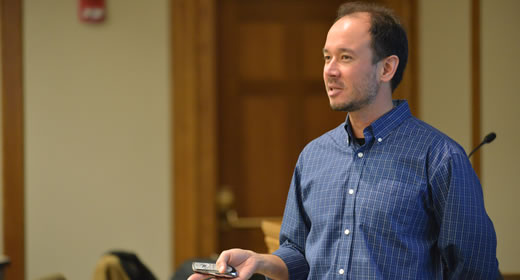
BBC’s “World Hacks,” a new weekly show dedicated to solving world problems, featured Dean Yang on its December 23 program: “Respect My Remittances.”
Reporter Sahar Zand describes a tricky problem affecting 230 million migrant workers who send money to friends and family members back home: how do you make sure the hard-earned money you send is spent the way you want? Remittances now reach $600 billion annually, eclipsing global foreign aid. Says Zand, “Economists now believe that if they’re spent right, remittances could do more to develop poor countries than aid ever did.”
According to Yang, “Remittances, as they stand, are already doing a great deal of good on reducing poverty, on raising household consumption levels, on helping households keep their kids in school and . . . invest in small enterprises.” But going forward, he says, researchers and policymakers need to ask: Can we “further enhance the impact of remittances on the lives of the families they’re being sent to and on broader economic development in migrants’ home countries?”
The proposed solution is called “labeling,” a concept so simple it is surprising that the work is only in development stages. Labeling involves migrant workers specifically noting their preferences for how to spend the money. For instance, one remittance may be divided into school fees, groceries, and an electricity bill.
In the few experiments done so far, most recipients chose to follow through with the migrant worker’s desires. In one study done by Yang, the ability for migrant workers to label their remittances for education even increased the funds they were prepared to send home by 15 percent.
While family members could still technically work the system, since they are not obligated to report their spending, researchers are hopeful that labeling will improve trust in relationships between senders and receivers of remittances. In the meantime, more research is being done; Yang is heading a large study on labeling in the Philippines due out in 2017.
Dean Yang is a professor of public policy and economics. His research, designed to address global poverty, focuses on international migration, microfinance, health, corruption, and the economics of disasters.